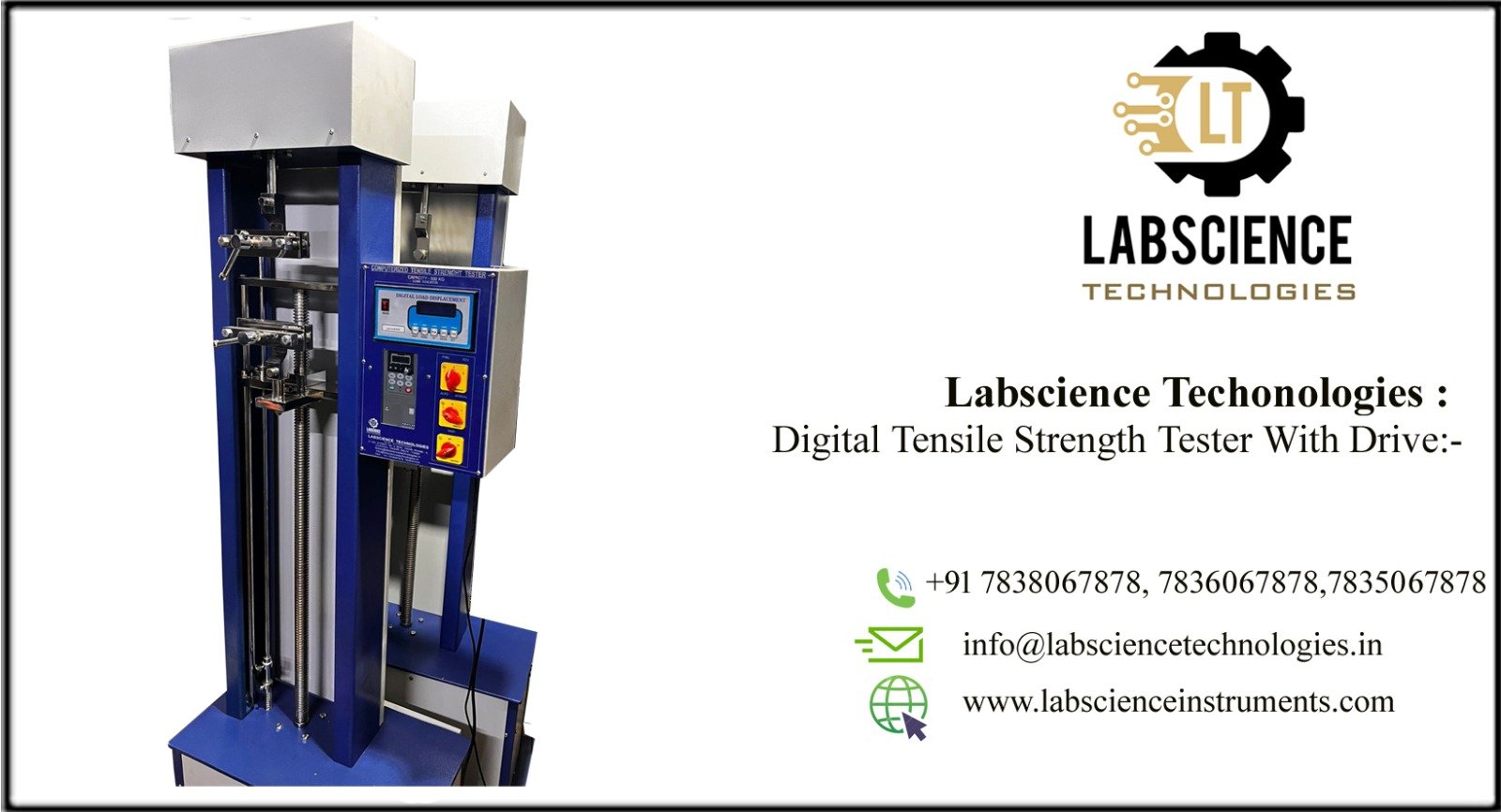Strength test Equipment
Strength Test Equipment is essential for assessing the mechanical properties of materials such as metals, plastics, rubber, and composites. This equipment is widely used across industries like construction, automotive, aerospace, and manufacturing to evaluate the strength, durability, and performance of materials under various conditions.
The primary function of Strength Test Equipment is to apply controlled forces to a material sample to determine its tensile, compressive, flexural, and shear strength. Tensile tests measure how much a material can stretch before breaking, while compressive tests evaluate how much force a material can withstand when compressed. Flexural and shear tests assess a material’s ability to resist bending and shearing forces, respectively.
Modern Strength Test Equipment is equipped with advanced features like digital load cells for precise force measurement, automated control systems for consistent test conditions, and software for real-time data analysis and reporting. This allows users to set specific test parameters, monitor the process, and generate detailed reports for quality control and research purposes.
Compliant with international standards such as ASTM and ISO, these machines ensure reliable and repeatable results. They are invaluable for ensuring that materials meet safety and performance requirements, aiding in product development, and optimizing material selection for various applications.
The Strength Test Equipment is designed with advanced features to deliver accurate and reliable results in testing the mechanical properties of materials. Here are the key features:
High-Precision Load Cells: The equipment is equipped with high-precision load cells that provide accurate force measurement during testing, ensuring consistent and repeatable results for tensile, compressive, flexural, and shear strength tests.
Digital Display and Control: A user-friendly digital display offers real-time monitoring of test parameters such as load, elongation, and displacement. The digital control interface allows users to easily set and adjust testing conditions like speed, force range, and test duration.
Customizable Test Parameters: The equipment allows for full customization of test parameters, enabling the testing of a wide range of materials under different conditions. This makes it versatile for use across industries including automotive, aerospace, construction, and manufacturing.
Automated Data Collection and Reporting: Integrated software automates data collection, storage, and analysis, reducing the chances of human error. It also generates comprehensive reports for further analysis or compliance with industry standards.
Durable Construction: Built from robust materials, the equipment is designed to withstand rigorous use in industrial and laboratory environments, ensuring long-term reliability.
Compliance with International Standards: The equipment meets industry standards like ASTM, ISO, and DIN, ensuring that test results are accurate, repeatable, and globally accepted.
These features make Strength Test Equipment indispensable for quality control, research, and development in material testing.
The Strength Test Equipment is designed with precision and versatility to test a wide range of materials for their mechanical properties. Below are its key specifications:
Load Capacity: The equipment supports various load capacities, typically ranging from 1 kN to 1000 kN, allowing it to test materials from lightweight plastics to high-strength metals.
Load Cell Accuracy: Equipped with high-precision load cells, the equipment ensures accurate force measurements with an accuracy of ±0.5% or better, providing reliable data for tensile, compressive, flexural, and shear tests.
Testing Speed: The machine features adjustable testing speeds, usually ranging from 0.01 mm/min to 500 mm/min, offering flexibility to test different materials according to specific requirements.
Crosshead Travel: With a crosshead travel distance of 600 mm to 1200 mm, the equipment accommodates various specimen sizes, enabling effective testing of long or bulky materials.
Data Output and Connectivity: The equipment is equipped with USB and RS-232 ports, ensuring seamless data transfer to computers for analysis and report generation. Advanced models also support Wi-Fi or Ethernet connectivity.
Digital Control Interface: The equipment includes a digital interface for easy control of test parameters, such as force, speed, and elongation limits, ensuring precise test conditions.
Power Supply: Operates on standard electrical inputs, typically 220V or 110V, 50/60Hz, making it suitable for laboratory and industrial environments.
These specifications ensure the Strength Test Equipment delivers precise, repeatable results, making it an essential tool for quality control, research, and development across industries.
Kindly fill this form to demand a call-back to from our client support boss with esteeming and details.
Call our Specialists for the Best Deal
+91 7838067878
Call Now
+91 7838067878

